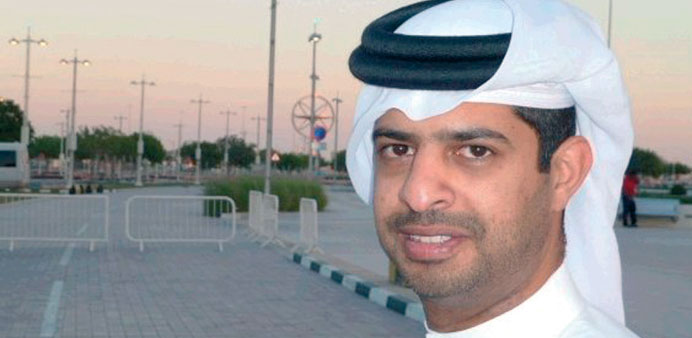Reuters/Berlin
Qatar is racing to develop efficient solar-powered cooling technology to counter the searing heat of the Middle Eastern summer in its stadiums during the 2022 soccer World Cup, a senior organising committee official told Reuters.
Nasser al-Khater, the organising committee’s communications and marketing director, also said the country would construct its stadiums with modular technology so it could downscale them after the tournament, and donate seating to countries with little sports infrastructure.
Al-Khater said the country already boasted the world’s first cooled stadium, albeit with traditional energy sources. Temperatures in Qatar can reach more than 40C in the summer months.
“We showed (world governing body) FIFA how the cooling technology works, it was warm outside but in stadium was cold they wanted their jackets,” al-Khater said during a trip to Berlin for a Qatari business and investment conference.
“So cooling a stadium is not the issue.”
The issue is that Qatar has promised to hold a carbon-neutral World Cup and so is researching solar-powered cooling technology. It will either create a central solar power farm or have individual ones installed in each of the 12 stadiums it is building, said al-Khater.
“When you don’t use it for the stadiums you feed it into the grid,” he said.
Qatar developed a small, solar-powered prototype stadium seating 500 during the bid process but wants to develop more efficient technologies ahead of 2022.
“With solar, the big challenge is how do you deal with solar technology in the desert in terms of withstanding the elements and getting it clean so it is efficient,” al-Khater said.
He said he had met several German companies during his trip to Berlin that had interesting proposals. Germany has been a pioneer in solar technology.
Many leading voices in football such as UEFA president Michel Platini have called for the World Cup to be held in December or January, when the average temperature is 17 degrees, rather than in the middle of the year.
Historically, the World Cup has always been held in June and July and any change could lead to a major scheduling headache with the major European leagues normally playing through the winter.
Al-Khater said Qatar would go ahead researching and installing the cooling technology either way as the stadiums would be used in the summer months even after the World Cup.
“Whether it is a winter or summer World Cup we will be ready,” he said.
Al-Khater said Qatar was using modular seating for the upper tiers of its new stadiums in order to be able to downsize after the World Cup.

Nasser al-Khater: u201cWe showed FIFA how the cooling technology worksu201d
